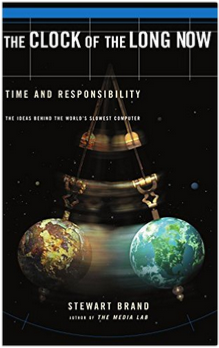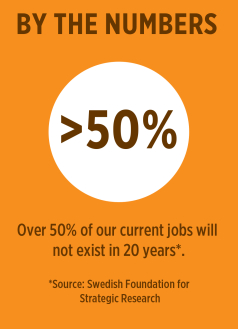On the Future of jobs |

|

As a part of the research for a current project around what will attract talent to a city or region in the future, I had a look at the future of jobs. It will probably not come as a surprise to anybody that robotics and automation will change the future of the job market. Research shows that as many as 50% of the jobs we are doing today will not exist in 20 years. So, what kinds of jobs will be lost? Robotics and automation easily produces a picture of a robot doing a certain job instead of a human, but in most cases, automation will mean that something done in a specific way today will be done in another – but automated – way tomorrow. It is mostly a question of innovation of processes. A recent example is Google automating the sales of ad space, previously done by humans, by inventing an auction-like procedure, which in a very short time became the market norm. How many jobs were lost? I don’t know, but we will see more and more of this type of change in the years to come. In general, the “safe” jobs (at least until the singularity happens, making machines smarter than us – or at least that is the theory) are the ones that require dexterity, originality and creativity, the human touch or planning skills, like working with very small objects, creating ideas – or art, caring for others and negotiating with and persuading people. This is something to consider when your kids are looking at putting 5+ years into higher education. Interestingly enough, many of the white collar jobs of today, sought-after and prestigious, you would think “future-safe”, are not.
But even more interesting is the societal aspect; in which ways will our world change on account of this? One of the biggest changes foreseen is the shrinking need for unskilled labor. For most of humanity, skills were essential for doing a job. The industrial revolution changed this, when large numbers of unskilled laborers were needed for handling the machines of industry. Now, we are moving towards a society where unskilled labor will be needed to a much lesser extent. This change will be so fundamental that we will need to find other ways to finance our collective societal needs than the taxes on labor. That is a real challenge for the future.




